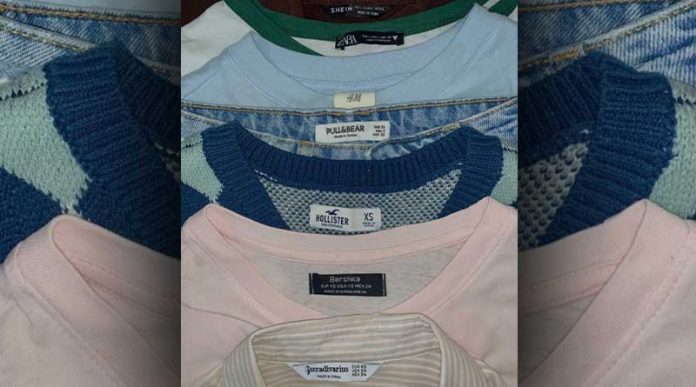Jumping on the sustainability bandwagon with no transparency does not seem to work anymore!
By Salma Atta
DUBAI, UAE– I and millions of consumers have fallen victims to a misleading marketing technique called greenwashing. You might have heard of white-washing, black-washing, or pink-washing, but have you heard of greenwashing?
My very first encounter with greenwashing was a few years ago when I was regularly shopping in major fast fashion stores Zara and H&M. At that time, both store interiors were totally different from what they used to look like and almost every single piece had a green ‘aesthetically pleasing’ tag attached to it with terms like ‘recyclable’ ‘consciouses’ ‘sustainable’. Like many others, I was surprised to see that these fast fashion giants were taking an ethical approach, but I was completely wrong.
Greenwashing is a rising issue
According to ‘Investopedia’, “Greenwashing is the process of conveying a false impression or providing misleading information about how a company’s products are more environmentally sound. Greenwashing is considered an unsubstantiated claim to deceive consumers into believing that a company’s products are environmentally friendly.”
Generation Z and younger age groups take environmental matters very seriously as they have more awareness regarding environmental issues. According to ‘CNBC’, the environment is number one concern to Generation Z as 73% of Gen Z consumers are willing to pay more for sustainable products. Like many young persons, I am guilty of shopping from unsustainable brands, but I think that every step that corporations take to be more sustainable matters.
Being environment-friendly is a thing that many billion-dollar corporations do not consider due to its high costs, so they use greenwashing to capitalize on the increasing demand for eco-friendly products.
The process of greenwashing may involve renaming or rebranding an older product and changing the packaging to a more ‘sustainable-looking’ one. In the process, companies will claim that their ‘new’ products are free of chemicals, energy-saving, recyclable, etc. In a report by ‘Changing Markets’, it was found that 60% of major fashion brands’ claims about sustainability are greenwashing.
Greenwashing does not only make a company untrustworthy, but it also violates the law because it is false advertising. According to The Independent, the number of advertisements banned in the United Kingdom for greenwashing has tripled from 2021 to 2022. Many companies use vagueness to advertise their so-called ‘green’ products. For example, many of these companies label their products as green or recyclable without providing any further description on how and why their products are eco-friendly, which is highly misleading.
Three persons, three solutions
The best way to avoid being tricked by greenwashed products is to look out for transparency. Transparent companies should be able to provide their customers with information about their fabrics and materials sources.
“Honestly, I avoid greenwashing through researching companies and checking if they have been in any controversies,” says American University of Sharjah student Zehra Qureshi.
While researching is an efficient method, many people find it easier and better to avoid the fast fashion industry. Sharjah resident and AUS student Jana Aljamal decided to boycott fast fashion years ago.
She said, “When I decided to stop wearing fast fashion, I already had a lot of clothes that were perfectly fine, so I still wear them up to this day.”
She added, “They are out of fashion, but I continue to wear them because they are still useful and clean.”
Aljamal explained that she also recycles and makes use of her mother’s vintage clothes and her siblings’ clothes instead of throwing them away. She also added that she puts so much effort into avoiding fast fashion by purchasing from small tailor shops in Sharjah. The proclaimed ‘conscious’ fast fashion brands contribute the most to the global waste problem. According to ‘Keep Britain Tidy’, every five minutes, around 10,000 clothing items end up in landfills by fast fashion corporations. Dubai resident Mariam Nasser thinks that this is a real issue therefore she thrifts most of her clothes.
Nasser says, “There are plenty of clothes, but I chose thrifting to avoid buying fast fashion because it causes pollution.”
She also added that thrifting is a different experience, and every thrifted piece is special and unique. Nasser also thinks that thrifting is one of the best ways to avoid greenwashing because it is an efficient way of recycling, and it brings awareness to the fast fashion industry issues.


















